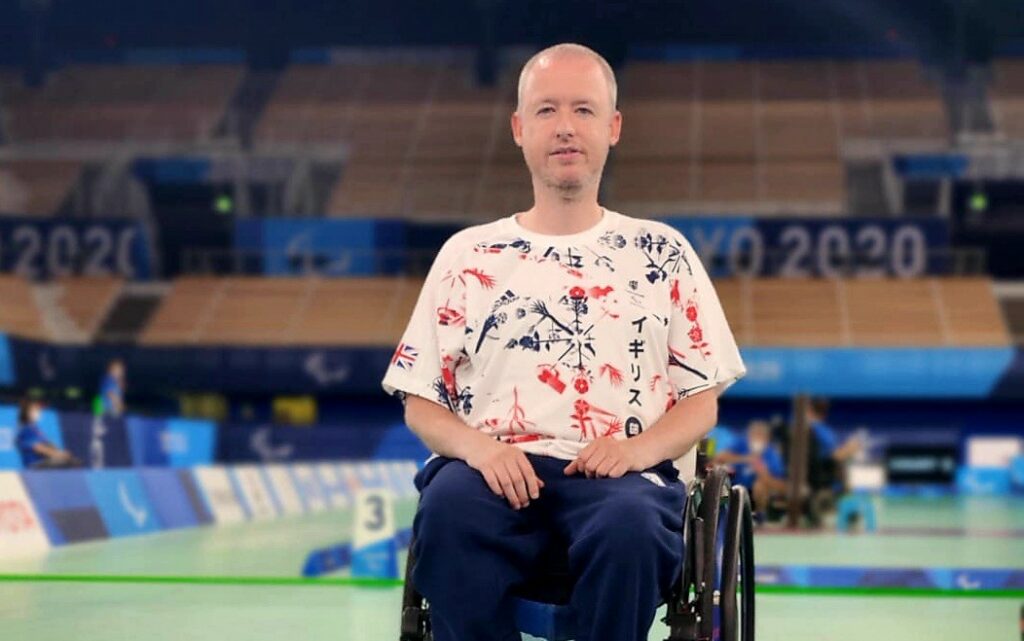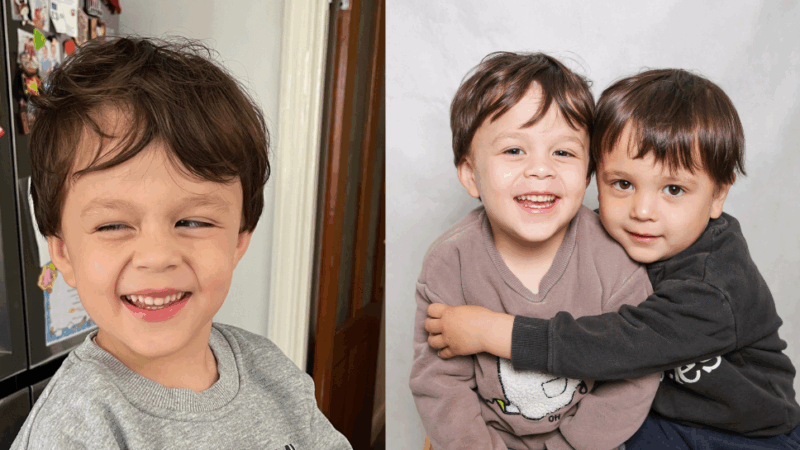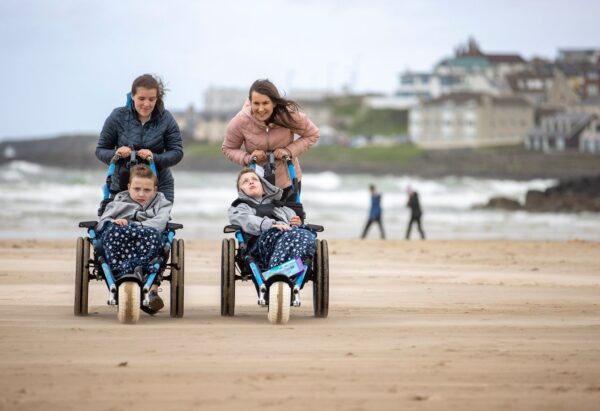Stephen McGuire is a BC four Boccia athlete for Great Britain. He shares his experience of finding Boccia, taking part in three Paralympic games, and what he’s most looking forward to in Paris. He reflects on how sport has helped his condition and shares what you can do to get involved in the action.
Competing in the Paralympics with muscular dystrophy

My dream was always to compete in the Paralympics. Now I’m a Boccia athlete for Great Britain and am about to compete in my fourth Paralympic games in Paris. Boccia is a sport that involved throwing or rolling balls as close as possible to a target ball. The qualifying games for this Paralympics have been particularly difficult. I’ll start competing on the 29 August and the different match stages should go on for around nine days. It’s an intense few weeks, but the excitement of competing for your country with thousands of people in the audience watching you… it’s a feeling I can’t describe, and I wouldn’t have it any other way.
Competing in the Paralympics
I’m in the BC four category of Boccia which means I’m able to throw the balls. I’m the oldest athlete in the squad now, having been playing for 20 years for Great Britain.
Boccia is such a tactical sport and the precision of some of the athletes is amazing. The game can literally come down to millimetres.
“I should be going to this Paralympics as third or fourth Boccia player in the world, which I’m hoping will give me a good shot at a medal.”
How I started playing Boccia
As someone who has merosin-deficient congenital muscular dystrophy and became a full-time power wheelchair at around age 14, I didn’t think there was any sport I could compete in. I remember watching the Sydney Paralympics in 2000 and seeing athletes in power wheelchairs for the first time.
“I’d never even heard of Boccia, but seeing athletes who looked like me inspired me to find a sport I could do.”
I sent emails to people I thought might be able to help, and it just so happened that the Great Britain coach for Boccia only lived six miles from me. She offered for me to come to her centre and have a go. They were short of players in my classification, so shortly after, they took me to the European Championships. If I’m being honest, I didn’t really know what I was doing. But when you’re being paraded around in the opening ceremony, and you look up and see 20 national flags, you realise ‘this is where I’m meant to be’.
Training for the Paralympics
Training for the Paralympics is very intense. There’s a lot of qualifying matches to attend, and for the last three months I’ve been away at training camps for two or three weeks every month. I don’t feel like I’m ever home at the minute. This presents its own challenges as a disabled person who needs support from personal assistants (PA).
Finding PAs who are willing to travel this much and spend long periods of time away from their family is difficult. Often a lot of family members go to assist the athletes. Or it’s great if you can find someone who is enthusiastic about sport and will enjoy the experience.
Paralympics I’ve competed in
To this day, London is still the best Paralympics I’ve competed in. I don’t think anything will live up to competing in your home country. All my family came to support me. Walking into the stadium to so much cheering is just incredible. I’m really excited that this Paralympics is in Paris as it will be the first time since London that my friends and family are able to come and watch.
After that, I went to Rio, which was like a big party. People in Rio love Boccia, so we played in a full 10,000-seater arena. It was an amazing atmosphere, but it was quite difficult to hear your teammates when the crowd was constantly doing Mexican waves.
Tokyo was very different because of the pandemic. There were no social events. You had to stay in your apartment unless you had a game, and there was no audience to play for. I’m sure it’ll feel strange going back to there being a full crowd in Paris, but I don’t get nervous when I play now. I did for maybe the first 10 years, but now I just love competing and enjoy being in the moment.
Sport has helped me manage my condition
“I’m fortunate I found sport as I think it’s really helped slow down the progression of my condition.”
Being on a Great Britain programme means we’ve got access to physiotherapists, hydrotherapy and any medical support we might need. I know it can be difficult transitioning from child to adult services as there is often a drop-off of support available, so I’m lucky I’ve been able to continue having physio.
“Sport is my passion and I never dreamt I’d be able to turn it into my job. It’s given me a purpose and I’ve made lifelong friends from all over the world competing in the Paralympics.”
Boccia has an amazing community. It’s very inclusive and you can play at any level you want to. There’re so many clubs out there now, which is wonderful to see. I’ve watched the sport grow from one international competition a year to around 16.
Whether your goal is to reach the Paralympics or simply to get out in the community more and find your people, I can’t speak highly enough of Boccia.


